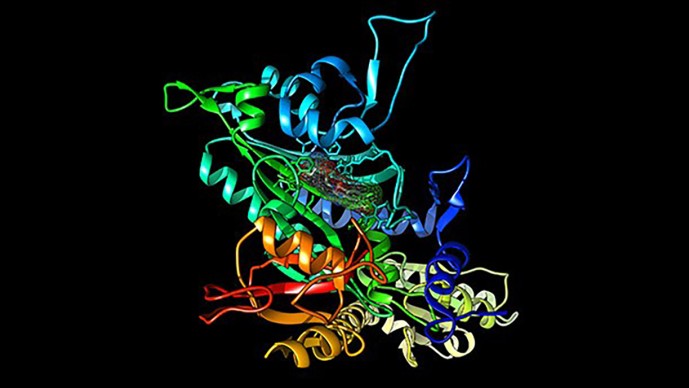New Approaches for the Interrogation of Anti-Malarial Compounds (Round 10)

Opportunity:
Extensive high-throughput screens of millions of proprietary and publicly-available compounds have led to the discovery of thousands with confirmed anti-malarial inhibitory activity against blood-stage Plasmodium falciparum parasites. Structures and descriptions of these compounds have been made publicly available in the literature[1],[2] and in publicly-accessible databases[3] in order to stimulate further research in malaria drug discovery. The Medicines for Malaria Venture (MMV) has recently selected 400 compounds from the chemical libraries of St. Jude Children's Research Hospital, Novartis and GlaxoSmithKline to form a “Malaria Box that is available for further study. The Malaria Box includes 200 drug-like compounds as starting points for oral drug discovery as well as 200 probe-like compounds representing the broadest cross-section of chemical diversity for use as biological tools.[4]
This represents an unprecedented opportunity in global health infectious disease research as a wealth of chemo-biological information and drug discovery starting points are available for the development of next generation anti-malarial drugs essential for achieving the goal of malaria eradication.[5]
What We Are Looking For:
The goal of this topic is to support unconventional and radically new approaches, methods, and assays to analyze, characterize and prioritize anti-malarial compounds and to glean more information required for the development of next generation malaria drugs. We wish to encourage researchers to develop and apply innovative biological, chemical, computational, and systems-based approaches for the interrogation of anti-malarial compounds to maximize knowledge gained from the publicly-available anti-malarial compound set and facilitate compound selection and development. Many of the proposed approaches might have broad applications in drug discovery, and we encourage researchers to harness emerging tools and approaches for the goals of this topic, and to apply innovative thinking so that new methods can be brought to bear on the needs of the developing world.
Access to anti-malarial compounds will be required In order to test some ideas. MMV will make available to successful applicants the Malaria Box, and for those projects that demonstrate a critical need to analyze a more extensive compound set, GlaxoSmithKline will make available the 13,500 compounds that comprise the Tres Cantos Anti-Malarial Set (TCAMS). Recipients of these compound collections are required to make publicly available the results of their research.
Applicants who would clearly benefit from additional expertise, access to tools, and/or capacity to achieve their research aims and objectives may propose that in Phase 2 of their program (as defined on the Grand Challenges Explorations Round 10 Rules and Guidelines on page 6) they form a partnership with the GlaxoSmithKline Tres Cantos Open Lab.
Please note that MMV and/or GlaxoSmithKline should not be approached for development of the proposal.
Careful consideration should be given to research activities considered off-scope for this topic (see 'we will not consider funding for' below).
A few examples of what we will consider funding:
- Novel and unprecedented genomic, biological, biochemical, 'omic (transcriptomic, proteomic, metabolomic) and computational approaches for the identification of the biochemical targets of anti-malarial compounds or the discovery of highly vulnerable parasite pathways.
- New malaria assays and technologies which can be used to robustly and efficiently analyze, triage and prioritize anti-malarial compounds.
- Novel approaches to comprehensively analyze, characterize and prioritize multiple compound series, for example new methods to assess speed of action, synergistic interactions, identify new scaffolds, or determine the mechanism of action of anti-malarials.
We will not consider funding for:
- Proposals that do not address interrogation of the anti-malarial compounds described in the Topic Description above.
- Basic research without a clear relevance to the goals of this topic.
- Screens of the anti-malarial compounds in standard whole cell malaria assays (blood, liver, sexual, and vector stage assays), standard biochemical screens against isolated malaria target proteins, or standard structure-based approaches for drug discovery. However, novel assays, platforms, or systems which offer a clear rationale and potential for outperforming existing tools and methods will be considered.
- Medicinal chemistry to optimize anti-malarial compounds or standard drug discovery hit triage, hit-to-lead, or lead optimization activities to improve the drug-like properties of compounds.
- The application of standard statistical or computational approaches (principal component analysis, clustering, filtering, pharmacophore modeling, virtual in silico screening, drug-like predictive techniques) which are commonly employed for the analysis of hit compounds derived from high-throughput screens.
References
[1] Gamo et al. Thousands of chemical starting points for antimalarial lead identification. Nature. 2010; 465:305-10.
[2] Guiguemde et al. Chemical genetics of Plasmodium falciparum. Nature. 2010; 465:311-5.
[3] https://chembl.gitbook.io/chembl-ntd/
[4] More information can be found at www.mmv.org/malariabox and at the FAQs page www.mmv.org/research-development/malaria-box-faqs
[5] The malERA Consultative Group on Drugs (2011). A Research Agenda for Malaria Eradication: Drugs. PLoS Med. 2011; 8.